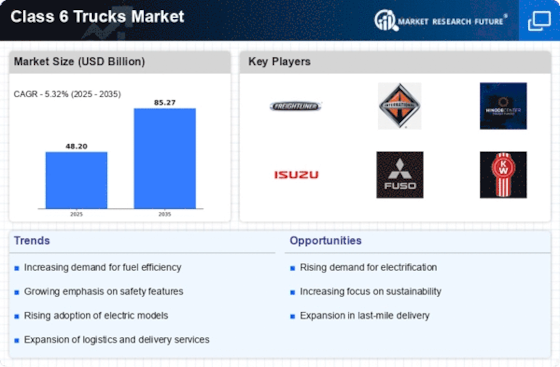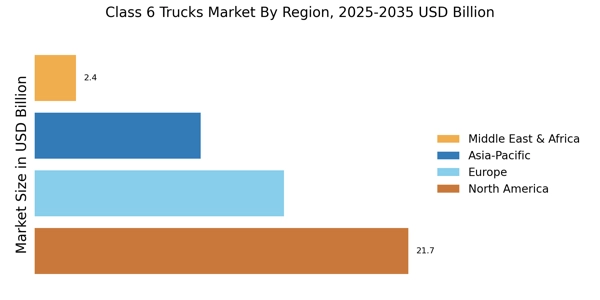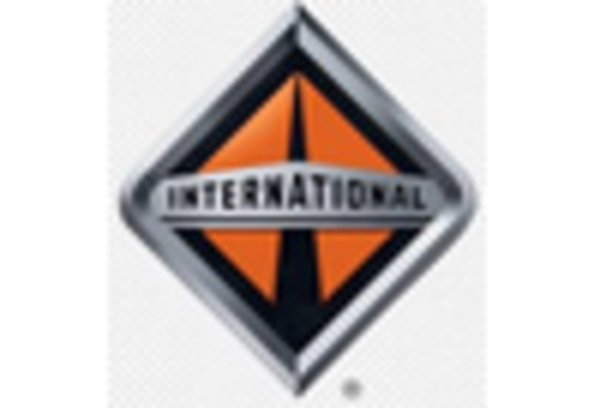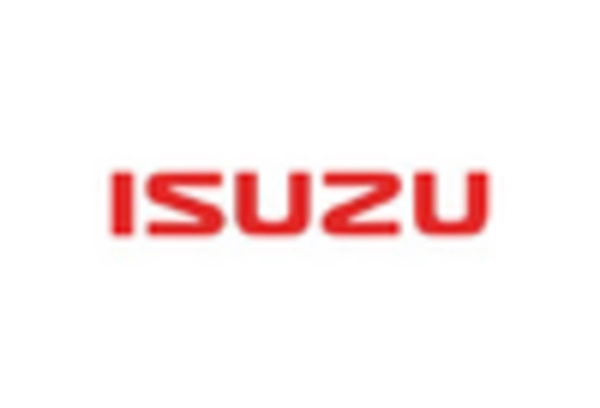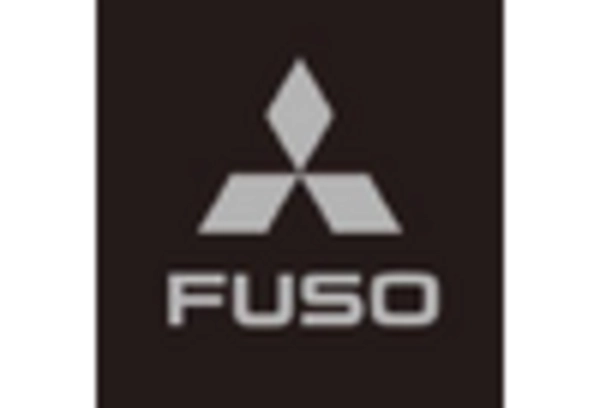Infrastructure Development Initiatives
Infrastructure development initiatives are playing a crucial role in shaping the Class 6 Trucks Market. Governments are increasingly investing in transportation infrastructure, including roads and bridges, to facilitate smoother logistics operations. Enhanced infrastructure not only improves the efficiency of truck operations but also reduces transit times, which is vital for businesses relying on timely deliveries. Recent reports indicate that infrastructure spending is expected to rise significantly, potentially exceeding several billion dollars in the coming years. This investment is likely to create a favorable environment for the Class 6 Trucks Market, as improved infrastructure supports the operational capabilities of these vehicles.
Rising Fuel Prices and Efficiency Needs
Rising fuel prices are compelling businesses to seek more fuel-efficient solutions within the Class 6 Trucks Market. As operational costs escalate, companies are increasingly focused on optimizing their fleets to reduce fuel consumption. Class 6 trucks, known for their balance of power and efficiency, are becoming a preferred choice for many logistics providers. Recent statistics indicate that fuel costs account for a significant portion of total operating expenses, prompting a shift towards vehicles that offer better mileage. This trend suggests that the Class 6 Trucks Market may witness a surge in demand for models equipped with advanced fuel-saving technologies, as businesses strive to enhance their bottom line.
Increasing Demand for E-commerce Delivery
The rise of e-commerce has led to a notable increase in demand for Class 6 Trucks Market. As online shopping continues to expand, logistics companies are seeking efficient delivery solutions to meet consumer expectations. Class 6 trucks, with their optimal payload capacity, are well-suited for urban deliveries, allowing businesses to navigate congested areas effectively. According to recent data, the e-commerce sector is projected to grow at a compound annual growth rate of over 10%, further driving the need for reliable transportation solutions. This trend suggests that the Class 6 Trucks Market will likely experience sustained growth as companies invest in their fleets to enhance delivery capabilities.
Regulatory Support for Emission Standards
Regulatory support for emission standards is influencing the Class 6 Trucks Market. Governments worldwide are implementing stricter emissions regulations to combat environmental concerns, prompting manufacturers to innovate and develop cleaner technologies. The introduction of low-emission and electric Class 6 trucks is becoming increasingly prevalent, aligning with sustainability goals. Data suggests that the market for electric trucks is expected to grow substantially, with projections indicating a potential increase in market share by over 20% in the next five years. This regulatory push not only enhances the environmental profile of the Class 6 Trucks Market but also encourages manufacturers to invest in advanced technologies.
Technological Integration in Fleet Management
Technological integration in fleet management is transforming the Class 6 Trucks Market. The adoption of telematics and fleet management software is enabling companies to monitor vehicle performance, optimize routes, and enhance overall operational efficiency. This technological advancement is particularly beneficial for Class 6 trucks, as it allows for real-time data analysis and decision-making. Reports indicate that the fleet management software market is expected to grow significantly, with projections suggesting an increase of over 15% annually. This trend indicates that the Class 6 Trucks Market will likely benefit from enhanced operational capabilities, as businesses leverage technology to improve their logistics processes.


